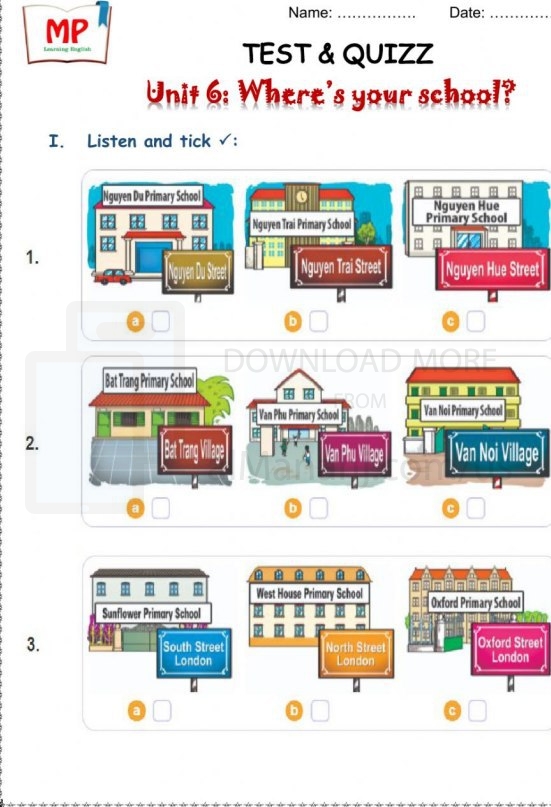| File info: A Test and Quiz in English is an assessment tool used to evaluate learners' knowledge, understanding, and proficiency in various aspects of the English language. It is designed to measure learners' comprehension of grammar rules, vocabulary, reading comprehension, writing skills, listening skills, and overall language proficiency. Tests and quizzes play a crucial role in assessing learners' progress, identifying areas for improvement, and providing feedback on their language abilities.
1. Test Format:
A test typically consists of a series of questions or tasks that assess different language skills. It may include multiple-choice questions, fill-in-the-blank exercises, matching exercises, short answer questions, essay questions, listening comprehension activities, and reading passages with corresponding questions. The format can vary depending on the specific language skills being assessed and the level of the learners.
2. Content Coverage:
Tests and quizzes cover a range of English language topics and skills. These can include grammar concepts such as verb tenses, sentence structure, parts of speech, and punctuation. Vocabulary assessments may test learners' knowledge of word meanings, synonyms, antonyms, and context clues. Reading comprehension tests evaluate learners' ability to understand and analyze written texts, while listening comprehension tests assess their understanding of spoken English. Writing tests require learners to demonstrate their ability to construct coherent and grammatically correct sentences and paragraphs.
3. Time Limit:
Tests and quizzes are usually timed to assess learners' ability to complete tasks within a given timeframe, which simulates real-life situations where time is limited. The duration of the test may vary depending on the complexity and number of questions or tasks. Short quizzes may have a time limit of 10-15 minutes, while comprehensive tests may range from 60 to 90 minutes or longer.
4. Grading and Scoring:
Tests and quizzes are typically scored to provide learners with feedback on their performance. The scoring system can vary, depending on the type of assessment and the scoring criteria. Multiple-choice questions may be scored automatically, while subjective questions like essays may require manual grading. Scoring can be based on accuracy, completeness, language proficiency, and adherence to specific criteria. Results are often presented as a numerical score, a percentage, or letter grades.
5. Purpose:
Tests and quizzes serve multiple purposes in English language learning. They help learners assess their progress, identify areas of strengths and weaknesses, and set goals for improvement. Tests also provide teachers with insights into learners' understanding of the language, allowing them to tailor instruction to meet individual needs. Furthermore, tests and quizzes contribute to the evaluation of learners' overall language proficiency and can be used for certification or advancement purposes.
6. Test Preparation:
To prepare for tests and quizzes, learners should engage in regular study and practice. This includes reviewing grammar rules, expanding vocabulary, practicing reading and listening comprehension, and honing writing skills. Learners can use study materials such as textbooks, online resources, practice exercises, and sample tests to familiarize themselves with the format and content of the assessment.
Tests and quizzes in English provide valuable opportunities for learners to demonstrate their language knowledge and skills. They play a vital role in assessing progress, identifying areas for improvement, and guiding learners on their language learning journey. By engaging in test preparation and actively participating in assessments, learners can enhance their language proficiency and achieve their language learning goals. |
